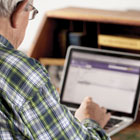Alternatives to face-to-face GP consultations have been implemented without clear rationale, sufficient understanding or support, according to a new study in the British Journal of General Practice.
The research from the University of Bristol concluded that approaches such as telephone, email, e-consultation systems, or internet video ‘may well increase rather than decrease GP workload’.
The qualitative study was conducted across eight UK general practices between June 2015 and March 2016, and involved observations, informal conversations and interviews with staff and patients.
In the last few years, there has been increased pressure on GPs to provide face-to-face substitutions. In 2016 a £45M funding boost was offered to practices who agreed to ‘online consultations’, as part of NHS England’s GP Forward View.
This followed the £50M ‘Challenge Fund’ from 2013, which trialled a number of options, such as Skype, email and phone consultations.
But GPs told the researchers there was potential for ‘hidden work that stretched the working day’, as while telephone appointments were expected to save time when compared with face-to-face consultations, in practice this was not the case.
Additionally, on some occasions patients then had to attend in-person visits, thus increasing the total number of consultations.
The paper found ‘clear barriers to the implementation’ including structural issues such as ‘insufficient phone lines and poor internet connectivity’ as well as the more complex concern of the ‘impact on the doctor–patient relationship.’
The study also found that the alternatives to face-to-face consultations had provided flexibility and control in some cases, as GPs had the option of choosing when they responded to messages or made calls. One GP said: ‘I’m able to manage my time a bit better.’
However, Professor Chris Salisbury, of the University of Bristol’s Centre for Academic Primary Care, concluded: ‘We found that new ways of accessing health care advice may well increase rather than decrease GP workload’.
He continued: ‘GP practices are struggling to identify and implement the most beneficial uses of these new technologies and they are frequently being adopted without sufficient understanding or support. Implementation was not well enough thought through in relation to personnel, training or logistical factors. As a result, efficiencies are not being realised’.
BMA GP committee chair Dr Richard Vautrey said the research shows that ‘rather than relieve these pressures, phone and online consultations can result in additional workload for overstretched GPs.’
He added: ‘No electronic system can fully replace the need for physical consultations that allow clinicians to examine their patients when that is necessary, which is why we are calling for an expansion, not just a substitution of the general practice workforce.’
Pulse October survey
Take our July 2025 survey to potentially win £1.000 worth of tokens
















